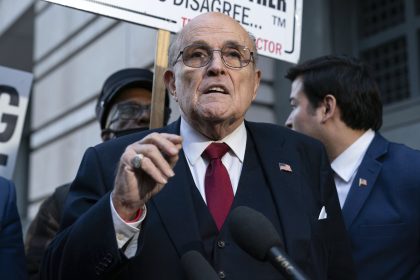Supreme Court to Tackle Issues of Religion and School Choice This Week

WASHINGTON – The Supreme Court on Wednesday will wade into a thorny battle over school-choice programs and state aid for religious schools as it weighs a request from three Montana families to allow a state scholarship program to fund their children’s Christian education.
The petitioners in the case argue they’re asking the court to resolve a conflict between the constitutional protection of freedom of religion and its prohibition against government support of religion.
But critics of that argument, including the American Federation of Teachers, say what the petitioners really want “is a broad constitutional ruling that the Free Exercise Clause prohibits states from refusing to fund religious education. ”
“If the decision goes in a certain way, it will be a virtual earthquake,” Federation president Randi Weingarten told ABC News recently.
Weingarten and others fear if the families prevails, it will lead to a significant reduction in state funding of public education.
The dispute in the underlying case goes back to 2015 when the Montana legislature approved state tax credits of up to $150 per year to encourage donations to a scholarship fund that supports low-income children seeking to attend private schools of their choice.
The three families in the case said they could not afford tuition payments to send their children to a local Christian school without financial aid.
But the Montana Department of Revenue intervened, holding that under Montana’s state constitution the tax-credit supported scholarships cannot be used to pay for religiously-affiliated education. The families sued.
In 2018, the Montana Supreme Court struck down the scholarship program in its entirety, prompting the families to seek U.S. Supreme Court review.
In their petition for a writ of certiorari, the petitioners claim Montana’s constitution violates the First Amendment’s religious free exercise clause, and that by law, the state must exhibit “neutrality not hostility” toward religion when it administers student aid programs.
In its response, the state argued the voiding of the scholarship program is not a case of hostility toward religion but rather stems from “the view that barring aid to religious institutions promotes religious freedom.”
“A state can decline to rebuild church playgrounds – but only if it declines to rebuild any playgrounds,” the state’s brief says. “And it can decline to support religious private schools – but only if it declines to support any private school.”
Thirty-seven states, including Montana, have explicit constitutional bans on any public funding for religiously-affiliated schools.
The case is Espinoza v. Montana Dept. of Revenue. No. 18-1195.






















